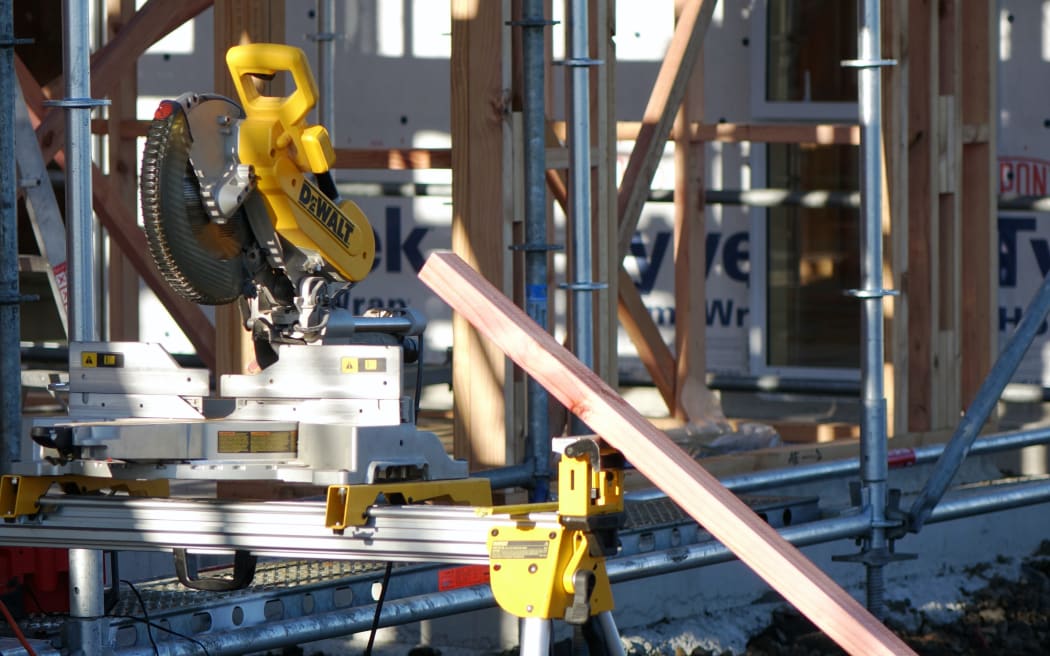
The 2023 Construction Sector Report from accounting firm BDO, shows four in five firms surveyed said access to labour was an issue. Photo: RNZ / Kim Baker Wilson
There are signs greater distress could be on the way for the construction sector as firms continue to face labour shortages and inflationary pressure.
The 2023 Construction Sector Report from accounting firm BDO, shows four in five firms surveyed said access to labour was an issue.
Nearly three-quarters said increased costs were eroding their margins and two-thirds said access to materials was an issue.
The report also found 42 percent of firms only had enough work for the next six months, or needed more work.
BDO construction sector leader Nick Innes-Jones said that meant more distress was potentially on the way for the sector.
"Given our respondents were generally larger companies, we were not expecting this percentage - being 42 percent - to be quite as high as it is," he said.
"The key point there is that lower turnover and residential companies seem to have less forward work than higher-turnover and commercial companies."
Innes-Jones said work in the residential sector was drying up.
The survey found more than one-third of businesses that generated less than $10 million either needed more work, or only had sufficient work confirmed for the next three months.
It also found 19 percent of construction firms had seen a concerning number of project cancellations.
Despite the pressure, Innes-Jones did not believe the sector was going through the tough end of a boom and bust cycle.
"There are some sectors that are continuing to do quite well [such as the commercial sector].
"And the successful businesses that we see are the ones that are learning to manage their peaks and troughs through their strong financial management processes," he said.
Innes-Jones said one of the main reasons the construction industry was prone to boom and bust cycles was that risk was often not appropriately managed.
"The whole industry, including clients, must work together to ensure risk is distributed fairly and according to who is best placed to manage it - ensuring they have the resources required to mitigate these risks.
"If the sector continues to focus on the lowest cost, buildings will continue to be defective, and unfortunately, in many cases the building owner will be the one that bears the full brunt of these issues."
He said strong financial processes to mitigate risk included reviewing cash flow and project margins regularly and stress-testing monthly forecasts against different events.







